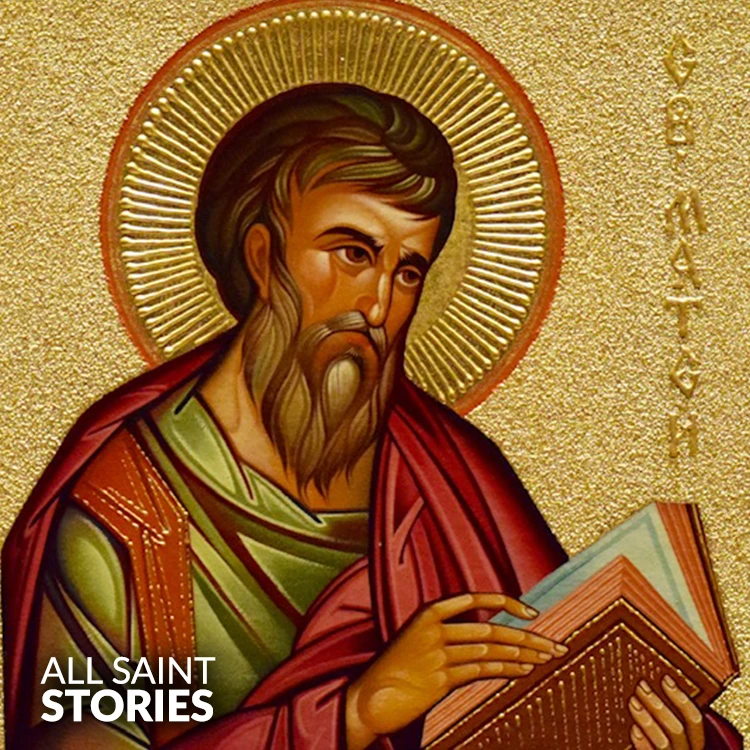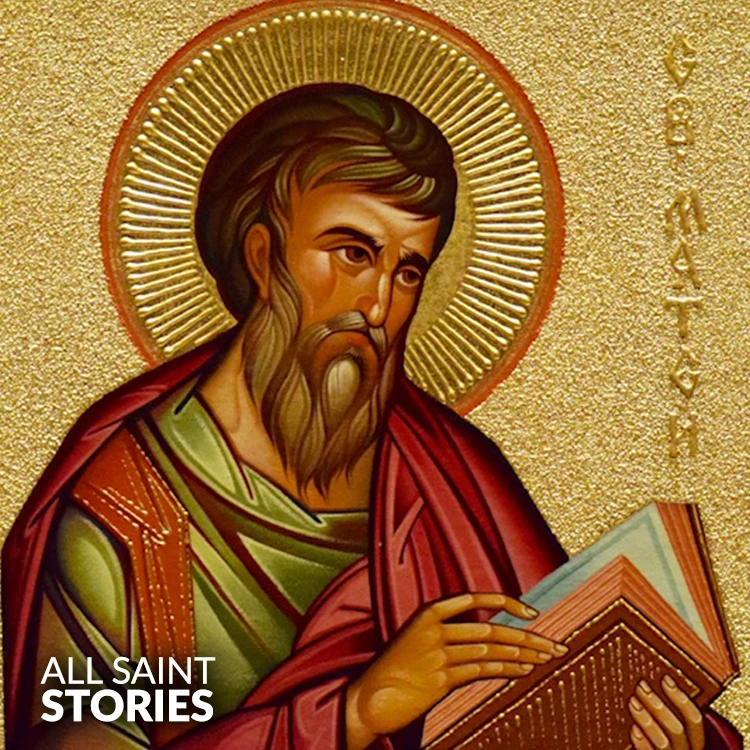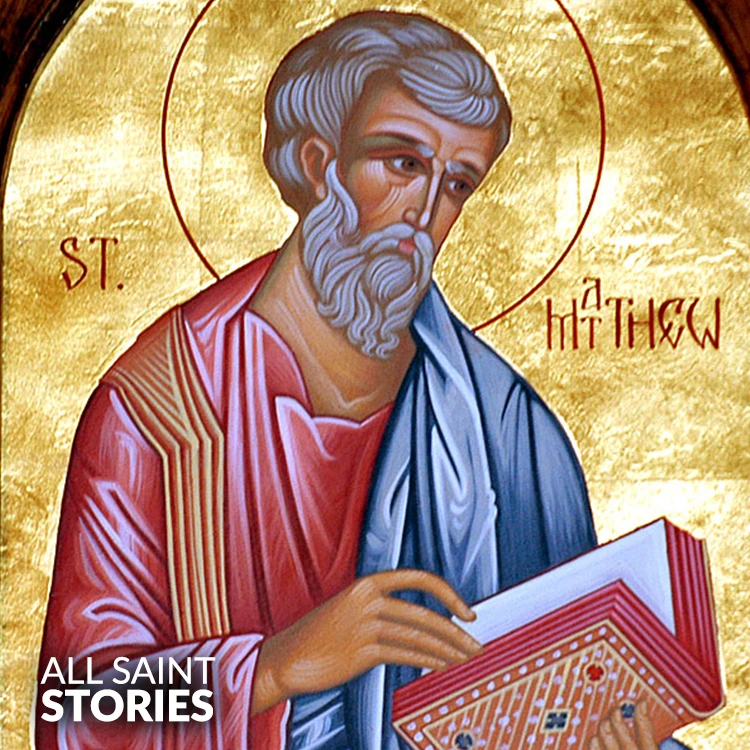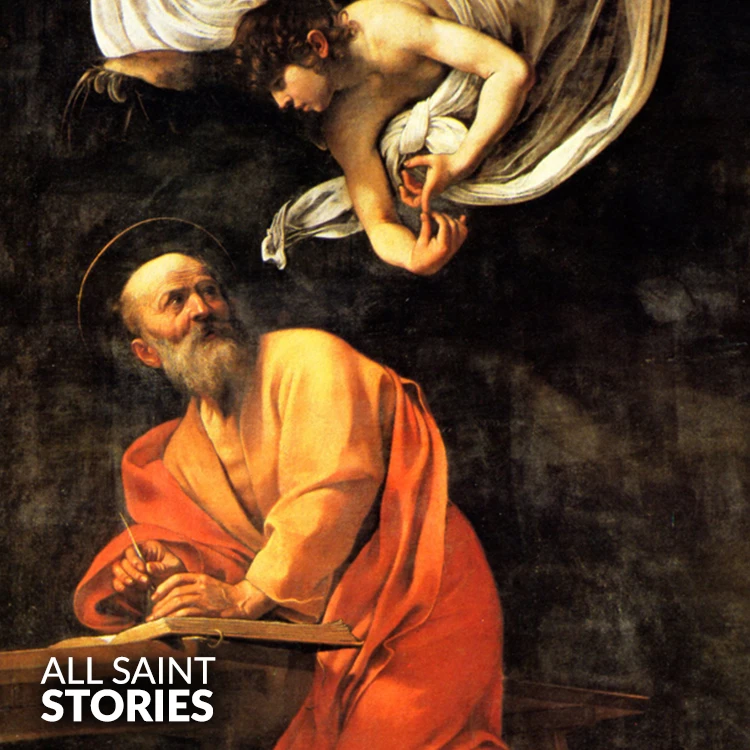"Saint Matthew, apostle and evangelist, Pray for us and intercede before the Lord, That we may be inspired by your faith and dedication. Guide us to follow Christ's teachings, And help us to spread His word with love and humility. Amen."
ST. MATHEW THE APOSTLE
ST. MATHEW THE APOSTLE

St. Matthew, one of the twelve apostles, was a tax collector before following Jesus. He authored the first Gospel, emphasizing Christ as the Messiah. His transformation from a public sinner to a holy evangelist inspires many. He is the patron saint of accountants and bankers.
St. Matthew the Apostle, also known as Levi, was one of the twelve apostles chosen by Jesus Christ. Before his calling, Matthew worked as a tax collector in Capernaum, a profession widely disliked by the Jews due to its association with Roman oppression and corruption. Despite this, Jesus approached Matthew directly, saying, “Follow me,” and without hesitation, Matthew left everything behind to become a disciple. This radical shift from a life of wealth and suspicion to one of spiritual devotion exemplifies the power of divine grace and the transformation that faith can bring.
Matthew is traditionally regarded as the author of the Gospel according to Matthew, which was composed to present Jesus as the fulfillment of Old Testament prophecies. His Gospel is notable for its detailed account of Jesus’ teachings, including the Sermon on the Mount, the Beatitudes, and the Lord’s Prayer. These teachings continue to be foundational in Christian ethics and spirituality.
Little is known about his later life, but early Christian tradition holds that Matthew preached the Gospel in various regions, including Ethiopia and Persia. He faced martyrdom for his faith, likely killed while celebrating Mass. Accounts vary, with some stating he was stabbed to death or burned, though none are definitively proven.
St. Matthew is venerated in both the Western and Eastern Christian traditions. His relics are believed to rest in Salerno, Italy, where a magnificent cathedral dedicated to him was built. The Church honors his feast day on September 21st. Over the centuries, he has been considered the patron saint of tax collectors, bankers, accountants, and civil servants, reflecting his former profession and his spiritual legacy.
Artists often depict St. Matthew with a winged man or angel, one of the four living creatures in the Book of Revelation, symbolizing his role as an evangelist. His transformation and Gospel writings have inspired countless believers to trust in redemption and to proclaim the message of Christ with courage and clarity.
Video Not Found
The information on this website is compiled from various trusted sources. While we aim for accuracy, some details may be incomplete or contain discrepancies.
If you notice any errors or have additional information about this saint, please use the form on the left to share your suggestions. Your input helps us improve and maintain reliable content for everyone.
All submissions are reviewed carefully, and your personal details will remain confidential. Thank you for contributing to the accuracy and value of this resource.
Credits & Acknowledgments
- Anudina Visudhar (Malayalam) – Life of Saints for Everyday
by Msgr. Thomas Moothedan, M.A., D.D. - Saint Companions for Each Day
by A. J. M. Mausolfe & J. K. Mausolfe - US Catholic (Faith in Real Life) – Informational articles
- Wikipedia – General reference content and images
- Anastpaul.com – Saint images and reflections
- Pravachaka Sabdam (Malayalam) – Saint-related content and insights
We sincerely thank these authors and platforms for their valuable contributions. If we have unintentionally missed any attribution, please notify us, and we will make the correction promptly.
If you have any suggestion about ST. MATHEW THE APOSTLE
Your suggestion will help improve the information about this saint. Your details will not be disclosed anywhere.
© 2026 Copyright @ www.allsaintstories.com





 English
English
 Italian
Italian
 French
French
 Spanish
Spanish
 Malayalam
Malayalam
 Russian
Russian
 Korean
Korean
 Sinhala
Sinhala
 Japanese
Japanese
 Arabic
Arabic
 Portuguese
Portuguese
 Bantu
Bantu
 Greek
Greek
 German
German
 Dutch
Dutch
 Filipino
Filipino